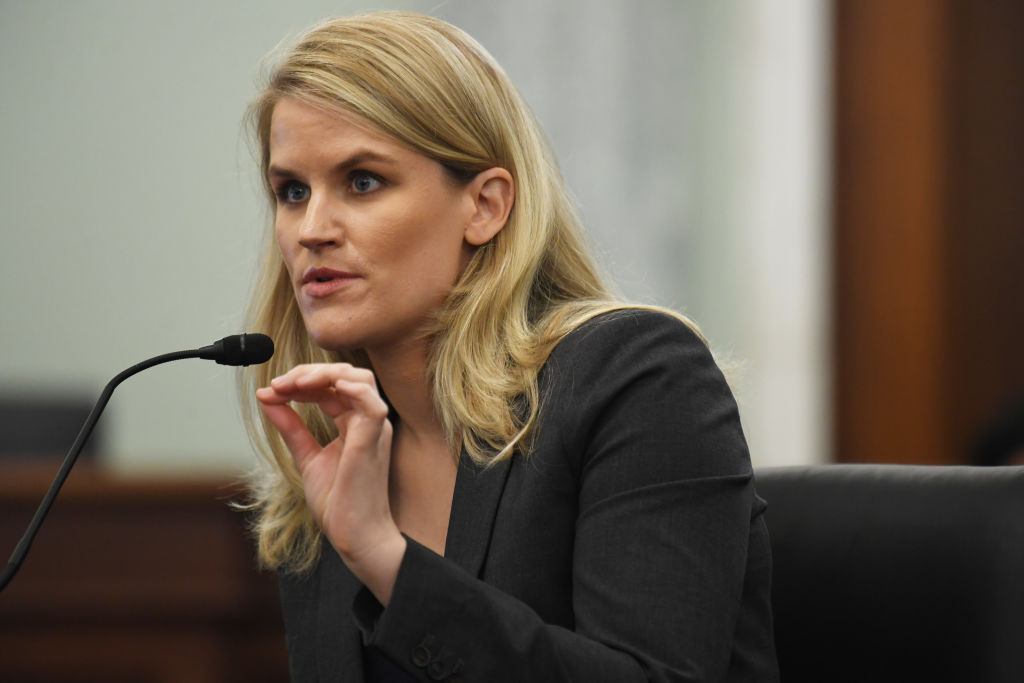Facebook whistleblower Frances Haugen talks Meta, Musk and online safety

When Frances Haugen leaked the Facebook Files last October, she became, for a few days at least, one of the most famous faces in the business world.
The data engineer turned whistleblower exposed what she called the tech giant’s “profits over people” mindset and shared internal research that suggested Facebook and Mark Zuckerberg-owned firms amplified hate, misinformation and political unrest.
Haugen said this Facebook research found Instagram to be particularly “toxic” for teens, feeding suicidal thoughts and body shame.
According to slides shared with the Wall Street Journal last year, 32 per cent of teenage girls surveyed said that when they felt bad about their bodies, Instagram made this worse.
She also suggested Facebook helped amplify disinformation during the Capitol Hill riots in January 2021, with safety systems only being applied on Facebook during the US election to limit misinformation.
Zuckerberg and his team rejected Haugen’s claims at the time, and a spokesman for the company told City A.M. that its position on the matter had not changed.
Since her dramatic exposé, Haugen has been on a mission to push for urgent regulation in Europe and the US to crack down on Big Tech accountability and transparency with algorithms.
Nonetheless, even in the time since her revelations, the social media landscape has changed dramatically.
Not only has Facebook enjoyed its own dramatic rebrand to Meta, but one of the world’s most famous entrepreneurs is now eyeing up its closest rivals.
Calling Elon Musk a “colourful character”, Haugen told City A.M. that she was optimistic about his $44bn (£35bn) acquisition of Twitter, praising his ongoing focus on bots.
Bots are problematic for social networks because they have the ability to influence trending topics and sway political narratives by distorting events.
“The reason they [social media giants] don’t take down bots is that one less bot will mean one less user. So if your user count goes down by one per cent, then the price of your stock can go down 10 or 15 per cent,” she said.
With some commentators framing Musk’s bot focus as a distraction tactic for negotiations, Haugen praises it as shifting the conversation away from purely optimising growth stats and profits, putting a greater onus on Silicon Valley to cough up honest figures – something that Twitter itself admitted was difficult to do when it came to bots.
Nevertheless, Haugen did highlight that if Musk really wants to create a pro-free speech platform, he needs to walk the fine line between content moderation and a complete content free-for-all, ultimately putting his main focus on product safety.
When asked whether she would work with Musk, Haugen instead answered: “I would even work at Facebook again,” adding, “I think it is such an important social problem that if I could work on it again. I would”.
But from one eccentric man to another, it felt impossible to talk about Musk’s ambitions for free speech without touching on Donald Trump’s indefinite ban on both Facebook and Twitter in light of rumours he may be running for President in 2024.
While Haugen refused to talk about Trump because he is, in her words, “so divisive”, she did say that in an ideal world where all social media had transparency on algorithms and outcomes, “everyone would be entitled to be on Facebook”.
Yet, she quickly added: “But right now, all speech isn’t treated equally, the more extreme, the more polarising, the more divisive, the more reach you get”.
As a self professed “optimistic person”, Haugen praised the European Union’s Digital Services Act as a pioneer for online safety, and hoped the UK’s own Online Safety Bill would follow suit.
For Haugen, we are still in the early days for true change, with too few people actually understanding the power of algorithms and Facebook’s influence on how information is spread, especially in the less economically developed regions where social media feeds may often be the main source of news.
But perhaps the most striking part of Haugen’s story is that although she is critical of Zuckerberg, she said the company is still capable of change. She told City A.M.: “I still believe in Facebook”.
So, while Haugen’s idea of what Big Tech regulation should look like is still some way off, she seems determined to fight the good fight, even if she does have to work with Musk or Zuckerberg to get it done.